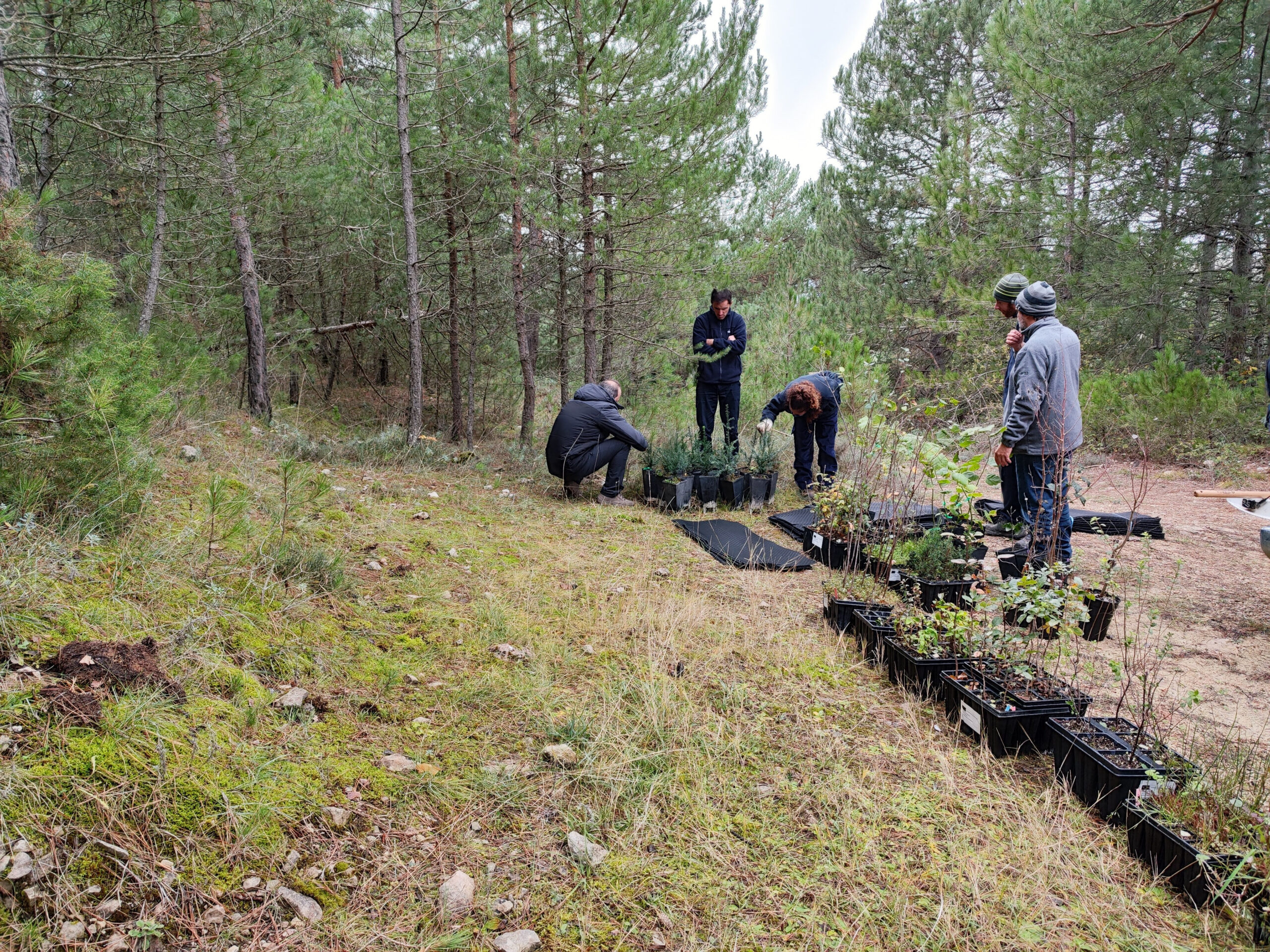Fundación Global Nature and Santander Consumer Finance collaborate with the first phase of the European project LIFE Teixeres. It is an initiative funded by the European Union and its partners are the Regional Ministry of Agriculture, Rural Development, Climate Emergency and Ecological Transition, VAERSA and the technical coordination of the Centre for Forest Research and Experimentation of the Valencian Community.
Over the next four years, the LIFE Teixeres project will work on the conservation and restoration of relict forests of Yew (Taxus baccata) in the Valencia Region. The project will cover 55 sites in 10 Natura 2000 Network areas. It is the most important intervention carried out so far to improve the habitat of the Yew tree in Valencia.

By the end of March, a total of 5,000 plants will have been replanted in the province of Castellón, in the mountains of Vilafranca, Herbeset, Ares del Maestre and Penyagolosa. This first phase of planting has the collaboration of Fundación Global Nature, an organisation dedicated to the protection of nature, and Santander Consumer Finance, through the campaign it launched last year, in which it undertook to plant a tree for every purchase of a Class A household appliance with financing.
The habitat of the yew tree in the Mediterranean area (with the Natura 2000 code 9580*) is considered a priority by the European Union. In addition, under Valencian legislation, the yew is listed as a monitored species. Currently, this species faces several threats in Valencian lands, such as the reduction of its habitat, the low number of new trees, climate change and fires. Its restoration requires very specific planting to introduce the same species that were originally there. In total, 32 species will be planted to accelerate plant succession, the replacement of one plant community by another, and thus achieve mature forests with the right habitat for the yew to survive.
The Centre for Forestry Research and Experimentation (CIEF) has carried out the collection of seeds in the native areas and the production of the plants in the nursery, which will now go out into the field. “The plants to be used are at least one year old, because at this age it is easier for them to take root. Even so, they have the complications inherent to a plantation,” say the CIEF. “We want to improve the conservation status and resilience of Mediterranean yew forests in Valencia in the face of the adverse effects of climate change, among others,” they add.


